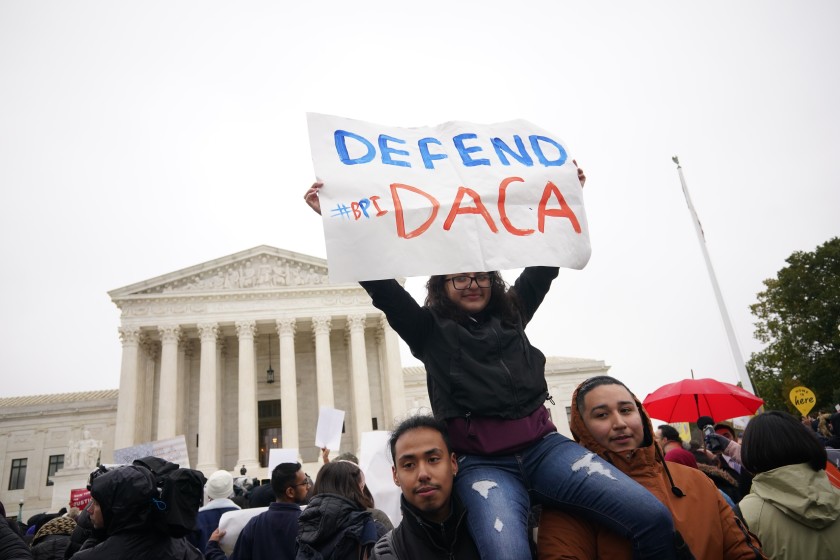Supreme Court should protect DACA program, not rescind it

This past Tuesday, the U.S. Supreme Court heard arguments on whether to allow the Trump administration to take away protections for nearly 700,000 undocumented immigrants who came to the U.S. as children.
Deferred Action for Childhood Arrivals (DACA) is an executive order implemented by the Obama administration that gave those children, also known as DREAMers, the ability to work and be protected from deportation.
The program has been under fire by the Trump administration despite the president’s assurances that he would maintain the program. The Supreme Court is expected to rule on the issue in spring 2020, and with a conservative majority on the bench the fate of DACA hangs in the balance.
Undocumented students should feel welcome in the USF community. It is important that the Supreme Court upholds DACA and administrations at the state, local and campus levels should uphold policies that protect DREAMers.
If DACA is rescinded it will have a huge impact on the lives of undocumented USF students who rely on the program to continue their education. Revoking the program would result in the cancellation of their driver’s licenses, could potentially diminish their job opportunities and could subject them to deportation.
According to Heide Castañeda, a USF associate professor and co-facilitator of the organization, UndocuALLY, the looming DACA decision has created some stress for students.
“There is a lot of anxiety that comes along with the rescission of DACA,” Castañeda said. “They have paid a good amount of money to be a part of this program, they’ve given their biometrics, their fingerprints, all of their personal information is on file with the federal government.”
It is easy to imagine how the federal government may misuse this personal information to target DREAMers. At a time in which the rhetoric around immigration is often inflammatory, the concerns of these students are well-founded.
Undocumented students should know that even if the Supreme Court allows DACA to be rescinded, there are still Florida laws that assist them in paying for higher education.
Florida passed a tuition equity bill in 2014 that allows undocumented students to pay in-state tuition. That resource is not dependent on DACA.
However, considering that undocumented students do not have student loans or Pell grants as a resource, it is even more important for those students to have access to a work permit, which DACA provides.
“Basically, what the end of DACA means for them is that they’re going to get their work permits taken away and without a work permit you really are more likely to not finish your college degree because you can’t afford it,” Castañeda said. “They are going to find it increasingly difficult to work to put themselves through college.”
If the Supreme Court rescinds DACA, it will be more important than ever for institutions all over the country, including USF, to do everything it can to protect undocumented students.
Jared Sellick is a senior majoring in political science.







